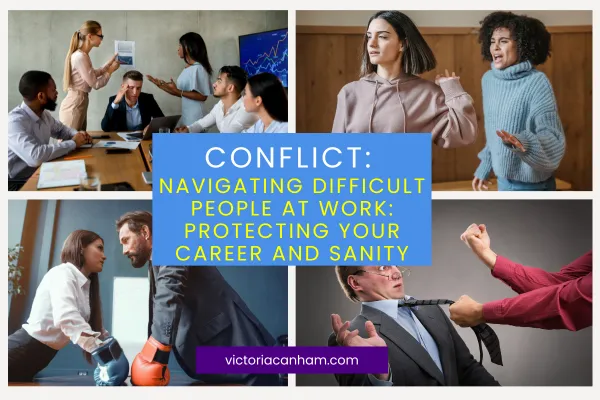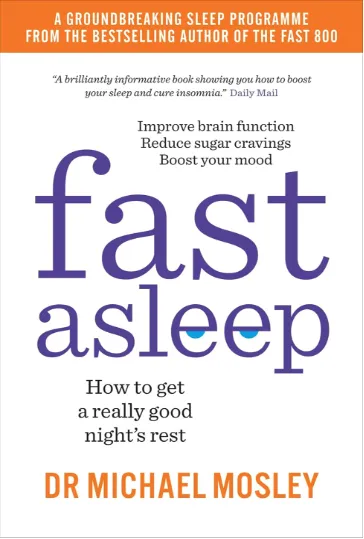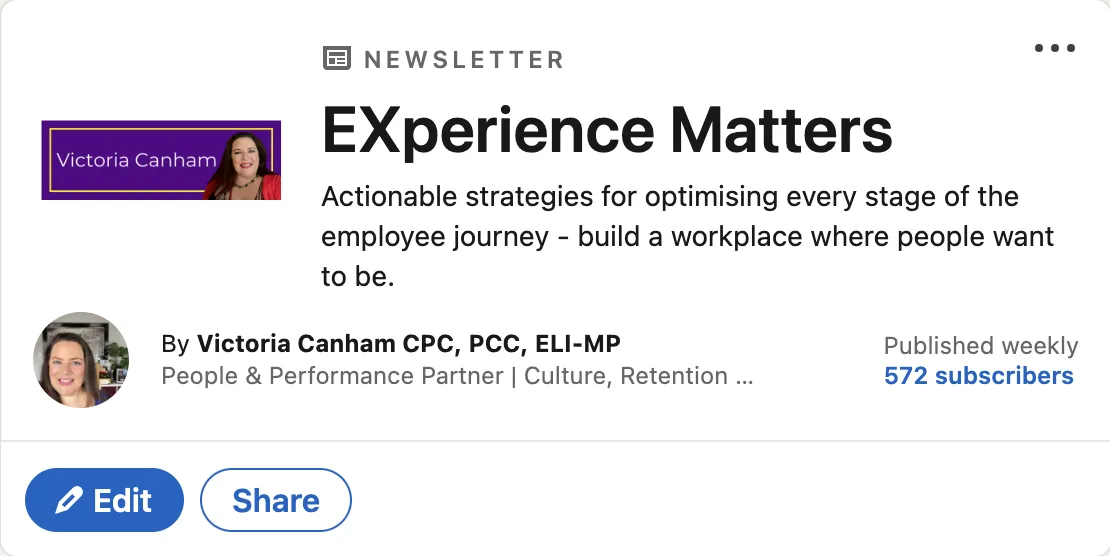Navigating Difficult People at Work: Protecting Your Career and Sanity
Victoria Canham • 20 March 2025 • 4 min read

"Pay attention to your enemies, for they are the first to discover your mistakes." - Antisthenes
Dealing with difficult people in the workplace isn’t just frustrating—it can derail your career, impact your mental health, and even lead to legal battles or forced exits. Whether it’s a micromanaging boss, a bullying colleague, or a toxic work culture, how you handle these situations determines whether you emerge with your dignity intact or get pulled into a professional nightmare.
Recognising the Problem
Some workplace conflicts are minor personality clashes, but others are more serious and demand action. Here are key red flags that signal deeper issues:
✳️ Micromanagement and Control: A boss who questions your every move, overrides your decisions, or never trusts you to work independently.
✳️ Bullying and Harassment: Repeated belittling, gaslighting, or exclusion.
✳️ False Allegations and Gossip: Being accused of things you didn’t do, with little opportunity to defend yourself.
✳️ Mentally Unstable Leadership: Erratic behaviour, emotional outbursts, or impulsive decision-making from someone in power.
Ignoring these problems won’t make them disappear. Instead, you need a strategy.
How to Handle Difficult People and Toxic Situations
1. Detach Emotionally, Stay Strategic
Difficult people (they aren’t all narcissists) thrive on emotional reactions. Keep your responses neutral and professional. Instead of reacting, respond with measured calmness—this keeps you in control.
2. Document Everything
When dealing with bullying, harassment, or false accusations, keep meticulous records:
✳️ Save emails and messages that show a pattern of inappropriate behaviour.
✳️ Take detailed notes after problematic conversations.
✳️ If necessary, keep a timeline of incidents with dates and specifics.
This evidence can be crucial if you ever need to escalate the issue formally. Formal escalations involve HR and may end up in a tribunal at ACAS (UK) or CCMA (South Africa).
3. Set Boundaries
✳️ If a colleague spreads rumours, don’t engage—correct misinformation professionally and move on.
✳️ If your boss micromanages, ask for clarity: “Would you prefer I check in at specific intervals, or should I continue handling this as agreed?” This shifts the burden of micromanagement back to them. Easier said than done, I know, but try to stay calm.
✳️ With a bully, disengage from personal attacks: “I’d appreciate it if we could keep this conversation focused on the work at hand.” But you do not have to tolerate bullying, escalate it, talk to the next leadership level above you (obviously not the person bullying you) or go directly to HR if the internal process allows it.
4. Know When to Escalate
If the situation worsens, escalate strategically:
✳️ HR Involvement: Ensure your complaints are fact-based and documented. HR exists to protect the company, not you (that's why they call you a resource)—so position your concerns in a way that highlights company risk (e.g., toxic leadership causing turnover, reputational damage, or legal liability). HR don't really want you to take the company to a tribunal anymore than you want to go, so they take this stuff very seriously.
✳️ Legal Consultation: If facing false allegations or potential defamation, consult a lawyer early. A well-timed legal letter can deter baseless claims. (VERY IMPORTANT and I'm sad it needs to be said, but: ChatGPT is not qualified to write legal letters and can land you in more hot water—ask a proper lawyer)
5. Exit Gracefully If Needed
If all else fails, leaving may be the best option. But don’t let them force you out on bad terms:
✳️ Negotiate Your Exit: If resigning, see if you can secure a settlement, extended benefits, or a non-disparagement agreement.
✳️ Control the Narrative: Ensure your departure isn’t framed as a ‘failure’—position it as a strategic move for your career growth.
Remember, in the UK (and South Africa) it is unlawful for the company to force you out through their continued poor conduct, this is constructive dismissal. A constructive dismissal occurs when an employer's conduct makes continued employment so intolerable that an employee is forced to resign, essentially being "dismissed" even though they resigned.
Protecting Your Mental Health in Workplace Conflicts
Dealing with toxic environments and difficult people can be mentally exhausting. Prioritising your well-being is just as important as handling the conflict itself. Here’s how you can safeguard your mental health:
✳️ Establish Emotional Boundaries: Recognise what is within your control and what isn’t. Don’t internalise someone else’s dysfunction.
✳️ Lean on a Support Network: Confide in trusted colleagues, friends, or a coach to help process your emotions and gain perspective.
✳️ Practice Self-Care: Regular exercise, mindfulness, and breaks from work-related stress help maintain resilience.
✳️ Seek Professional Guidance: If the situation is deeply affecting your well-being, a therapist or coach can help you manage stress and regain confidence.
How Coaching Can Help You Take Back Control
Coaching provides a structured way to navigate workplace conflicts with clarity and confidence. A performance coach can help you:
✳️ Develop strategies to handle workplace bullies and micromanagers.
✳️ Improve emotional resilience and self-worth.
✳️ Make informed career decisions that protect your future.
✳️ Strengthen negotiation and conflict resolution skills.
Book a call today.
Mediation: A Path to Resolution
When conflicts seem insurmountable, workplace mediation can be a powerful tool. A neutral third party helps facilitate discussions, ensuring both sides are heard and working towards a resolution that prevents legal action or dismissal.
Mediation is particularly useful when:
✳️ Communication has broken down between employees and leadership.
✳️ There are ongoing conflicts that disrupt team performance.
✳️ A resolution is needed without damaging professional reputations.
Book a call today.
Final Thoughts: Your Self-Worth Is Not Up for Debate
Toxic people and workplaces don’t define your value. Protect your peace, guard your professional reputation, and always act with integrity. A bad boss or colleague is a temporary challenge—your career and self-worth are far bigger than any one toxic experience. Even in a difficult employment market, your mental well-being has to be the priority because ignoring it can have catastrophic long-term effects and impacts. Mental health first my friend, this stuff hurts and it’s so very unfair, but it can and will get better.
Need help navigating a difficult work situation (or person)? Let’s talk, I’d love to join your corner. Book a coaching session and take back control of the situation and your future.
I work with clients from all over the world. But, if you are in South Africa, please get in touch for local rates.
Recommended Reading
Fast Asleep: How to get a really good night's rest by Dr Michael Mosley
A good night's sleep is essential for a healthy brain and body. So why do so many of us struggle to sleep well? In Fast Asleep, Dr Michael Mosley explains what happens when we sleep, what triggers common sleep problems and why standard advice rarely works.
Prone to insomnia, he has taken part in numerous sleep experiments and tested every remedy going. The result is a radical, four-week programme, based on the latest science, designed to help you re-establish a healthy sleep pattern in record time.
With plenty of surprising recommendations - including tips for teenagers, people working night shifts and those prone to jet lag - plus recipes which will boost your deep sleep by improving your gut microbiome, Fast Asleep provides the tools you need to sleep better, reduce stress and feel happier.
We’re not just about overcoming obstacles, we’re about transforming lives.
Book Recommendation

Victoria Canham - Your Performance Partner
Victoria is an ICF-accredited certified professional coach, who offers personalised performance coaching. With a background in change management and countless hours of professional coaching training and experience, I made the big switch to full-time coaching in 2020. I know what it is like to suddenly have the rug pulled out from under you while you're busy making other plans, as a result, I now help people like you to bounce back from adversity and major setbacks to emerge stronger and better than ever before. Our clients have transformed from feeling overwhelmed by life's challenges to confident, goal-driven individuals who navigate life's obstacles with ease. They've achieved their personal and professional objectives and embodied peak performance in all aspects of life. You too can experience this transformation. This is your moment. Your chance to take control, to choose growth over stagnation, achievement over inaction. This is your opportunity to prove to yourself that you're not defined by your challenges—you're defined by how you rise above them. Are you ready to transform your life and achieve peak performance?
Hang out with us on social media
FREE RESOURCES
LET'S WORK TOGETHER
Book a call to find out how I can help you to achieve your peak performance.
© Copyright 2025 Victoria Canham Coaching | Website built by Me on FEA Create (aff.)
Performance Coaching Reading, London, Berkshire, Oxford | St George's Road, Reading, Berkshire, United Kingdom, RG30 2RL [email protected] Monday to Friday 9 am until 5 pm




 RSS Feed
RSS Feed